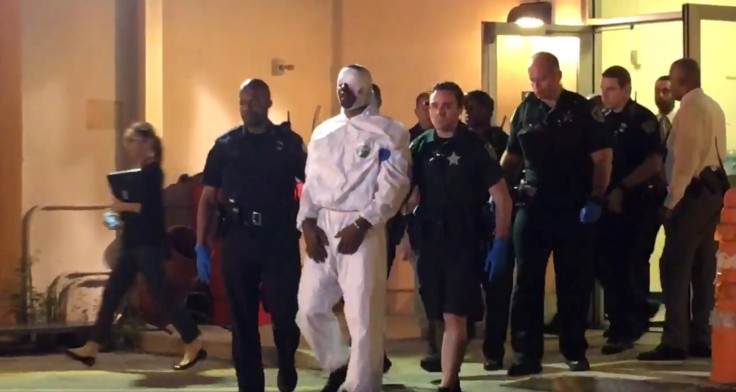Florida Refuses Death Penalty For Orlando Police Shooting Suspect Markeith Loyd, Leaving Officers 'Furious'

UPDATE: 5:06 p.m. EST — Gov. Rick Scott has reassigned the Markeith Loyd case to Fifth Judicial Circuit State Attorney Brad King in a Thursday afternoon executive order. State Attorney Aramis Ayala, who refused to seek the death penalty for Loyd, will no longer be prosecuting the case.
Here's what Gov. Rick Scott had to say about his decision to reassign the Markeith Loyd case. The latest: https://t.co/HUWyG1Bwvl pic.twitter.com/7a1xIqmnEi
— WESH 2 News (@WESH) March 16, 2017
Original story:
A Florida state attorney won't seek the death penalty for Markeith Loyd, an Orlando man accused of murdering his pregnant girlfriend and a police officer, prompting a firestorm of criticism from law enforcement and praise from civil liberty groups.
Osceola-Orange County State Attorney Aramis Ayala said Thursday that the death penalty is "not in the best interest of the community or the best interest of justice" in a news conference.
The decision immediately drew condemnation from the law enforcement community and Florida politicians. Orlando police chief John Mina said he was "furious" with the decision and Republican Gov. Rick Scott called on Ayala to remove herself from Loyd's case. Loyd was accused of murdering girlfriend Sade Dixon in December and Orlando police officer Debra Clayton when she tried to arrest him in January.
Read: What Is A Sovereign Citizen? Accused Cop Killer Markeith Loyd Is Part Of Fringe Movement
“I want to be very clear, Lt. Debra Clayton was executed while she was lying on the ground fighting for her life," Scott said in a statement released Thursday.
"She was killed by an evil murderer who did not think twice about senselessly ending her life. I completely disagree with State Attorney Ayala’s decision and comments and I am asking her to recuse herself immediately from this case... She has made it abundantly clear that she will not fight for justice for Lt. Debra Clayton and our law enforcement officers who put their lives on the line every day."
Ayala explained she reached her decision after a careful review of capital punishment cases and found the death penalty does not deter crime. She also said it was more expensive to put someone on death row rather than put them in jail for life and that the endless appeals of death row inmates can actually prevent victim's families from achieving closure.
I support DA @DonellAyalaEsq 's decision to tell the truth about the death penalty. https://t.co/OeIUklkdfA
— John Legend (@johnlegend) March 16, 2017
“Some victims will support and some will surely oppose my decision, but I have learned that death penalty traps many victim’s families in decades-long cycle of uncertainty,” Ayala said. “I cannot in good faith look a victim’s family in the face and promise that a death sentence handed down in our courts will ever result in execution.”
"Ending use of the death penalty in Orange County is a step toward restoring a measure of trust and integrity in our criminal justice system," Adora Obi Nweze, president of the Florida State Conference NAACP, told the Associated Press.
Florida is one of 32 states that is authorized to use the death penalty. The state has executed 23 inmates under Scott and has the second largest death row in the country after California, which hasn't executed anyone since 2006.
On Monday, Scott signed a bill that required a unanimous jury recommendation to hand down the death penalty. The bill represented an effort to restart the state's use of capital punishment after the U.S. Supreme Court ruled in 2016 that the state's death penalty process was unconstitutional because it gave too much power to judges.
© Copyright IBTimes 2025. All rights reserved.






















